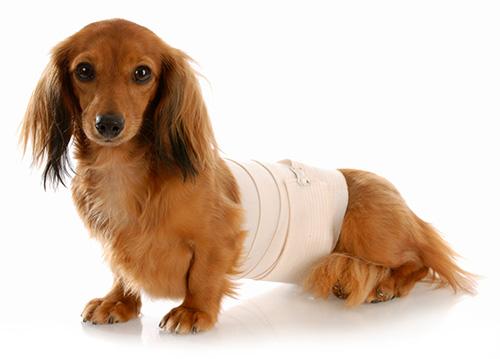Contents
Common Causes Of Dachshund Back Problems
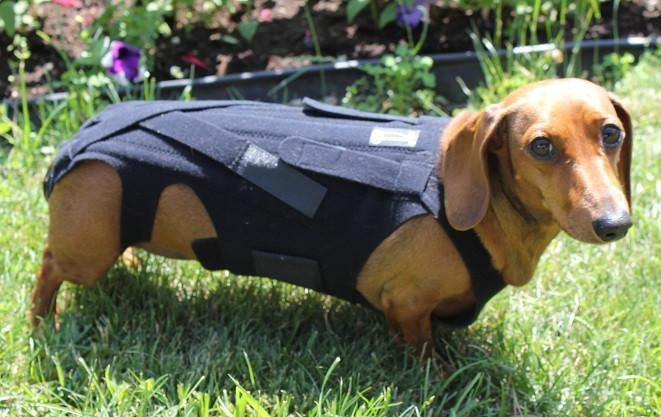
IVDD
IVDD occurs when a disk in the spine becomes herniated, ruptured, or slips. When a disk becomes injured, the shock from movement is not properly absorbed, causing your dog back pain and limiting his mobility. If left untreated, IVDD can reduce your dachshund’s quality of life and possibly lead to paralysis.
INFECTION
Canine meningitis occurs when the membrane that covers and protects the spine and brain becomes infected or inflamed. The condition is characterized by pain in the neck and back, and stiff legs.
Canine meningitis is a serious disease that can affect any dog breed, including your dachshund. Be sure to notify your veterinarian if your dog manifests any of the previously mentioned symptoms.
Kidney infection can also cause back problems in dachshunds. Although the problem is in the kidneys, the condition often causes back pain and cramps. Other signs of a kidney infection include; loss of appetite, lethargy, vomiting, and difficulty urinating.
Sometimes people get confused and think that their dachshund is constipated because of the squat and strain. Dogs with a urinary tract or kidney infection do this because urinating is painful or they can’t urinate at all. Like canine meningitis, kidney disease is also a serious condition that requires prompt medical treatment.
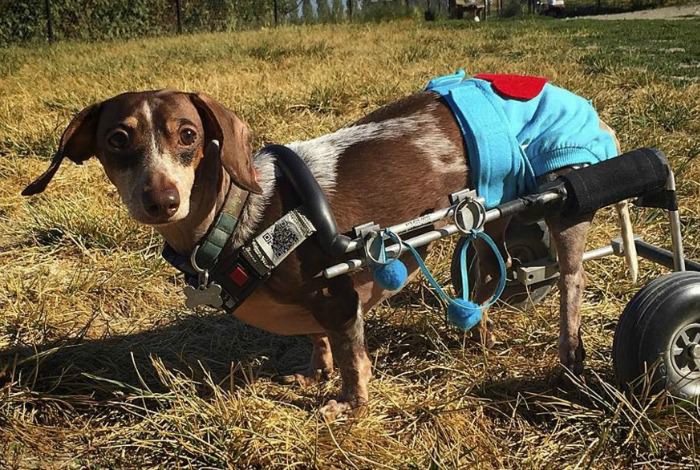
SPINAL TRAUMA
Dachshunds have fragile backs and are prone to back fractures, dislocations, and soft tissue damage. Get immediate veterinary care if your dog injures his back. In most cases, the sooner your dog is treated for a back injury, the better the chances are that he’ll fully recover. Spinal trauma is painful and can also lead to paralysis.
Symptoms Associated With Dachshund Back Problems
- Arched Back or Lying in a Fetal Position (from pain)
- Crying when Lifted or Changing Positions
- Trouble with Balance
- Weakness in the Rear Legs
- Decreased Appetite or Vomiting (from pain)
- Decreased Activity
- Lethargy
- Unwillingness to Climb Stairs
- Paralysis
Conducting a physical/neurological exam is one of the first things your veterinarian will perform to make a diagnosis. An x-ray may also be taken to look for any visible spinal damage.
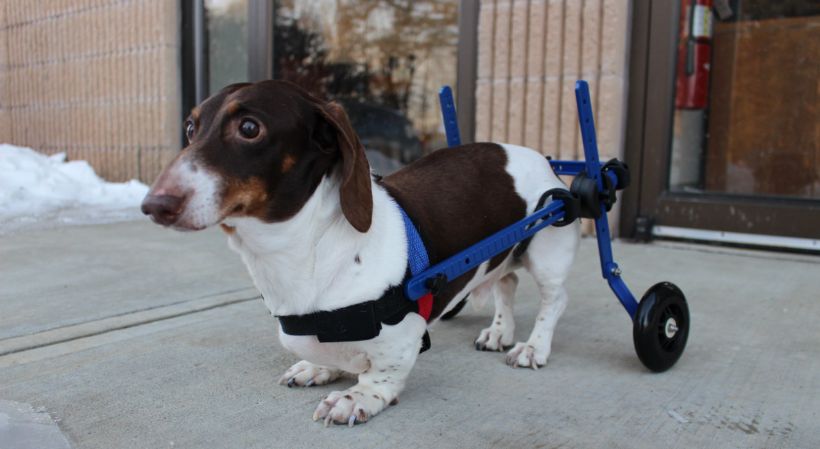
Dachshund Back Problem Treatment Options
Treating dachshunds back problems depends on the severity of the condition and underlying cause. For example, if your dog has a kidney infection, he will be given antibiotics. The back problems should go away once the infection has cleared.
Less serious cases are often treated with anti-inflammatory drugs and strict rest. In this case, it’s recommended that you place your dog in an appropriately sized cage until he is fully recovered. This will limit your dog’s moving space, allowing him to heal faster and also prevent additional injuries from occurring.
If your doxy is overactive, you can ask your vet for a tranquilizer. This type of medication is usually a last resort because of the side effects involved, but they will prevent your dog from re-injuring his back.
With your veterinarian’s approval, special devices such as back braces can also be used to manage chronic back pain in your doxy. Physical therapy and acupuncture are two other options available to help manage back pain.
Severe dachshund back problems, where the dog can no longer walk without assistance, often require surgical correction. During the procedure, the affected vertebrae or disc may be removed to reduce pressure and pain.
Another essential part of treating a dachshund with serious back problems is keeping him clean. If your dog suffers from paralysis, you will need to carefully monitor him in case he urinates or defecates on himself. Keeping your dog clean will help prevent secondary health issues from developing such as a skin infection.
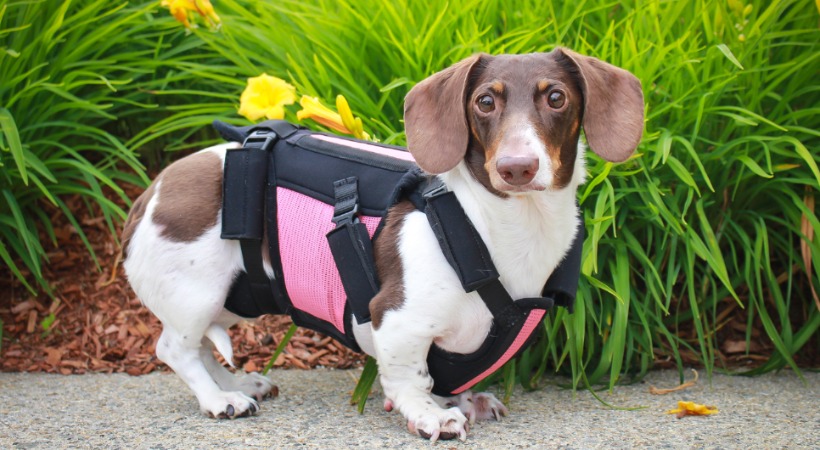
Dachshund Back Problems Preventions
Maintaining your dachshund at a healthy weight is one way to help prevent back conditions. Excess weight causes extra pressure in your dog’s back, making him more vulnerable to injury.
Regular exercise is another way to prevent back problems, as it strengthens the muscles in the back and provides extra support for the spine. Avoiding activities that may increase the risk for back injury is also important. Some activities to avoid include; jumping, running upstairs, and rough play.
While dachshund back problems are something most dachshund owners fear, the condition is treatable in most cases. The key to a successful recovery is acting fast: the sooner your dog receives treatment, the better his chances will be of fully recovering.

